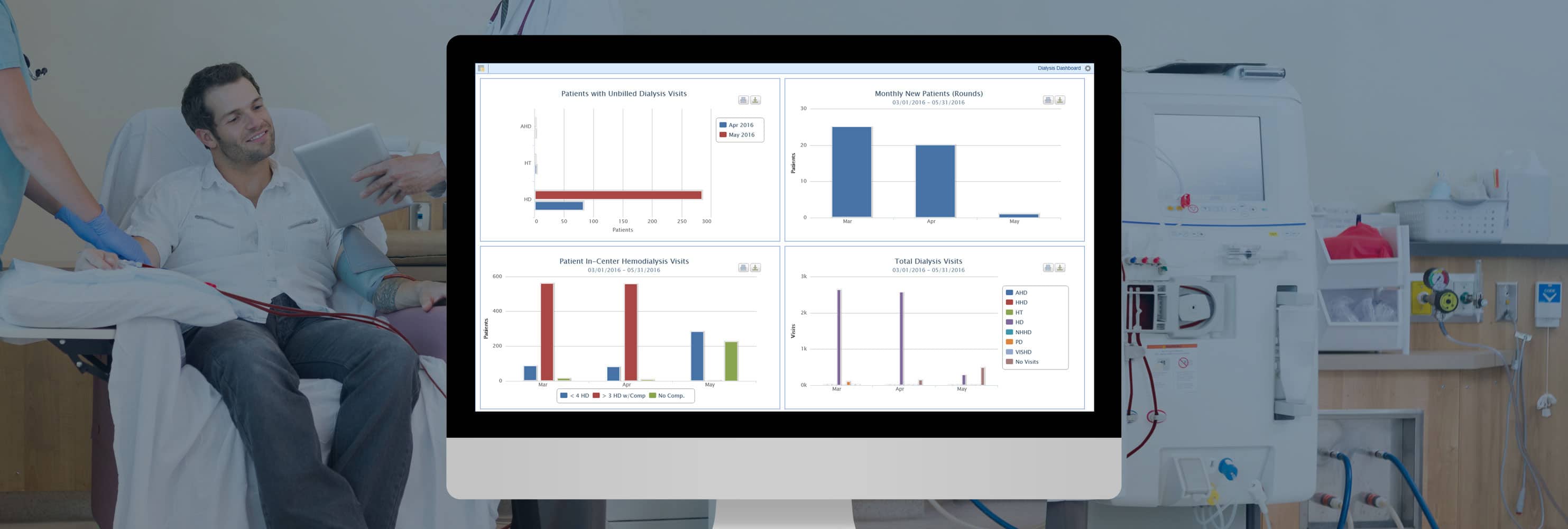
Advanced Tools Your Nephrology EHR Needs
Your organization needs a Nephrology EHR that has advanced and specialized tools. Nephr...
March 23, 2022
Kidney disease is skyrocketing in the U.S. today:
With the number of kidney patients rising annually, more and more nephrology providers are changing their management strategy and embracing patient-centered care. As a result, we’re entering a new era in nephrology, where patients and family members play a much more active role in the care and treatment process to improve overall health outcomes.
At a high level, patient-centered care is all about putting the patient and their loved ones at the center of the decision-making process and making them feel like they are part of the treatment planning team.
In this type of environment, nephrologists operate with full transparency, sharing data and taking the time to listen to patient and family viewpoints. Patient-centered care also prioritizes patient comfort and emotional well-being and seeks to understand their core goals.
The shift to patient-centered care is a major change for the nephrology industry — and one that may require a bit of an adjustment for your practice. Even so, it’s one of the most important things you can do to attract and retain patients because it can lead to a host of benefits for your patients, your staff members, and your medical practice.
According to a recent study, 68 percent of patients say their healthcare providers need to improve how they interact with patients. This is an area where patient-centric care can help, as it demonstrates your practice cares about patients’ time, happiness, and overall well-being.
At the same time, nephrologists need to find ways to lower turnover and prevent talented staff members from leaving. In one study, 33 percent of nephrology nurses said they are job hunting or planning retirement. Further, 8 percent said they want to stay in nephrology but aren’t happy with their work environment.
By taking better care of patients and staff members, nephrology clinics can earn stronger recommendations and reviews, which can make it easier to attract new patients and generate more revenue.
Thanks to recent technological advancements, it’s easier than ever for nephrologists to make patient-centered care a reality. With that in mind, here are some technologies that can help you provide better care.
Physicians spend an average of two hours on electronic health records (EHR) for every one hour of patient care. By using a nephrology-specific EHR solution, it’s easier to access key information about a patient’s vitals, view lab reports, and look at historical information — helping physicians reclaim time while expediting patient care.
This type of software can also provide access to nephrology management tools like advanced dialysis tracking, which makes it possible to automatically manage patients by location and shift. As a result, it’s easier for staff members to access data and ensure that patients are receiving the proper treatment.
When patients don’t show up for appointments, their treatment plan deteriorates and your practice’s expenses increase. By offering telehealth appointments, you can solve this problem by making it easy for patients to see physicians from the comfort of their own homes. This can reduce no-shows while demonstrating your clinic’s flexibility and commitment to modern technology.
One of the best ways to increase patient-centric care is to provide access to a mobile patient portal. This essentially serves as a one-stop shop where patients can access medical information, pay bills, ask questions, and schedule appointments.
At the end of the day, your EHR system is one of the most critical pieces of technology in your nephrology practice. After all, it’s responsible for storing patient records and helping clinicians track progress over time. That being the case, it’s vital to have a platform that’s easy to use and up to date with the latest nephrology-specific tools.
To make the purchasing process easier, iSalus offers a free EHR Buyer’s Guide for Nephrologists. Access your free copy here.